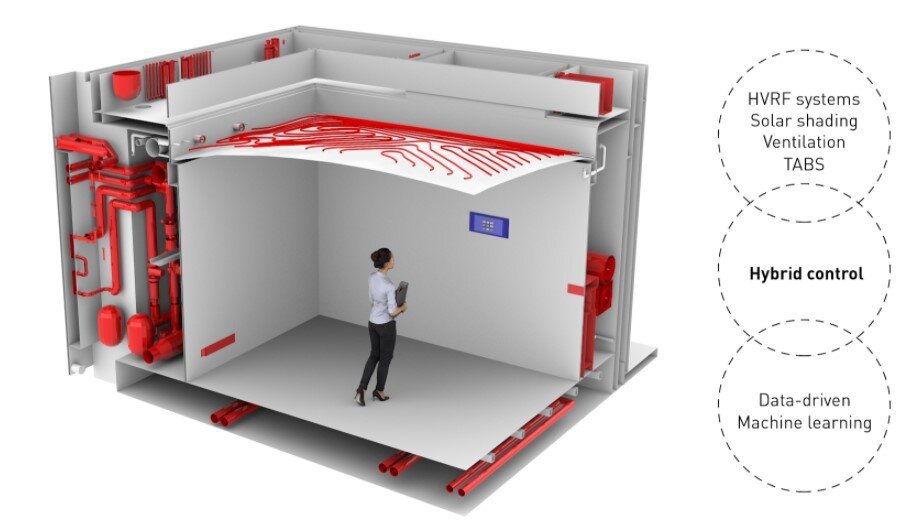Reinforcement Learning Control of Diverse Climatisation Systems for Energy Efficient Buildings
Hybrid control of a set of building systems using data-driven machine learning © Architecture and Building Systems, ETH Zurich
Duration /
2020-2024
Funding /
A/S Team /
A. Silvestri, E. Borkowski, A. Schlüter
Key Partners /
Mitsubishi Electric R&D Centre Europe B.V.
Demonstrators /
NEST HiLo
Heating, ventilation, and air-conditioning (HVAC) systems are the primary devices providing occupant comfort in buildings. HVAC systems are the most energy-demanding equipment in the building lifecycle, and increasing energy efficiency is a fundamental aspect to mitigate the environmental impact of buildings. One way to address this problem is to employ more advanced building control algorithms that adapt over time to match occupant comfort while minimising the non-renewable energy consumption. However, the traditional rule-based and model-based strategies are often inefficient in real-world applications due to the complex building thermal dynamics and heterogeneous environment disturbances, such as unpredictable occupant behavior or unexpected energy flows.
This research project will investigate a data-driven approach based on the deep reinforcement learning framework. The proposed control methods, which exploit the potential of deep neural networks, learn the effective strategy for operating the HVAC systems without needing a detailed mathematical model. This research aims to develop the control algorithm during the operation phase of a real building and investigate the algorithm performance in real-case scenarios by evaluating adaptability and generalisability to different building contexts.

